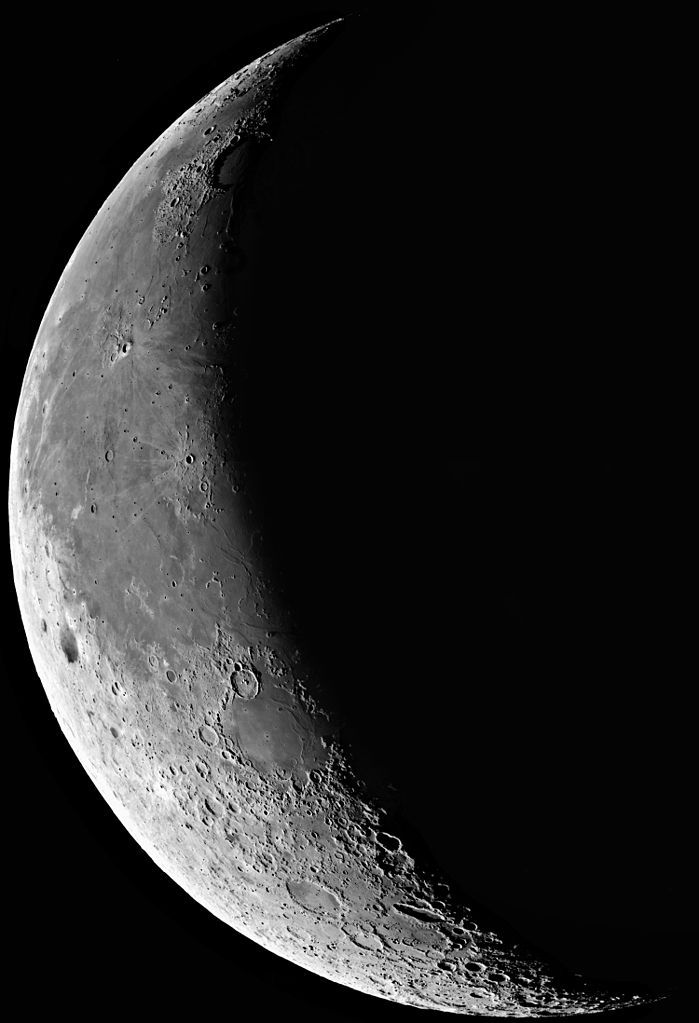This is an archive of prayers written for Shabbat Məvorkhim, the Shabbat before the New Moon.
Click here to contribute a prayer you have written for Shabbat Məvorkhim.
⤷ You are here:
🖖︎ Prayers & Praxes —⟶ 🌔︎ Prayers for the Moon, Month, and Festival Calendar —⟶ Prayers for the Moon's Renewal —⟶ Shabbat Məvorkhim 📁 Rosh Ḥodesh :: (Next Category) 🡆 Shabbat MəvorkhimThis is an archive of prayers written for Shabbat Məvorkhim, the Shabbat before the New Moon. Click here to contribute a prayer you have written for Shabbat Məvorkhim. Filter resources by Collaborator Name Sarah bat Tovim | Marcus Heinrich Bresslau | Tracy Guren Klirs (translation) | Moritz Mayer (translation) | Seril Rappaport | Fanny Schmiedl-Neuda | Unknown | Aharon N. Varady (transcription) | Julia Watts Belser (translation) | Wikisource Contributors (transcription) Filter resources by Tag Aquarius | Aries | Asher | Ashkenaz | Avraham Avinu | Bilhah | Binyamin | Bohemian Jewry | Capricorn | childlessness | children | days of awe | אלול elul | English vernacular prayer | Gemini | German vernacular prayer | Haman | חשבון הנפש Ḥeshbon HaNefesh | in the merit of martyrs | In the merit of Miriam | In the merit of Moshe Rabbeinu | in the merit of our ancestors | in the merit of Raḥel | in the merit of Yosef | Jewish Women's Prayers | judgement | Leah | Manna | martyrdom | Mazal Aqrav | Mazal Dagim | Mazal D'li | Mazal G'di | MAZAL QESHET | Mazal Shor | Mazal Taleh | Mazal Teomim | Miriam | Miriam's well | Mordekhai | naḥshon ben aminadav | Naphtali | Needing Attribution | Needing Proofreading | Needing Transcription | new moon | paraliturgical birkat haḥodesh | Paraliturgical Prayer for the New Month | paraliturgical teḥinot | Pisces | Queen Esther | רחל Raḥel | Rain | repentance | REUVEN | Scorpio | self-discipline | שבת מבורכים shabbat mevorkhim | Shevet Issachar | Shevet Yehudah | talmud torah | Taurus | תחינות teḥinot | Teḥinot in German | the first month | THE HUNTER | the second month | the sixth month | תחינות tkhines | Torah as intercessor | Tribe of Dan | Twins | Uriel | Vilna | winter | ימים נוראים yamim noraim | Yiddish vernacular prayer | Zevulun | Zilpah | זמן תשובה Zman teshuvah | 18th century C.E. | 19th century C.E. | 56th century A.M. | 57th century A.M. Filter resources by Category Rosh Ḥodesh Adar (אַדָר) Alef & Bet | Rosh Ḥodesh Av (אָב) | Rosh Ḥodesh Elul (אֶלוּל) | Rosh Ḥodesh Iyyar (אִיָּר) | Rosh Ḥodesh Kislev (כִּסְלֵו) | Rosh Ḥodesh Marḥeshvan (מַרְחֶשְׁוָן) | Rosh Ḥodesh Nisan (נִיסָן) | Rosh haShanah (l’Maaseh Bereshit) | Rosh Ḥodesh Shəvat (שְׁבָט) | Rosh Ḥodesh Sivan (סִיוָן) | Rosh Ḥodesh Tammuz (תַּמּוּז) | Rosh Ḥodesh Tevet (טֵבֵת) | Rosh Ḥodesh Tishrei (תִּשְׁרֵי) Filter resources by Language Filter resources by Date Range Looking for something else? For prayer composed for, or relevant to, Rosh Ḥodesh, visit here. For public readings prepared for Rosh Ḥodesh, visit here. For the Ḳiddush Levanah, go here. For prayers composed for a specific month: Resources filtered by TAG: “Needing Attribution” (clear filter) Sorted Chronologically (old to new). Sort most recent first? The teḥinah for the blessing of the new moon is said each Shabbat Mevorkhim, addition to the specific teḥinah for that month. The prayer is recited when the Aron HaKodesh is opened, signifying the opening of the Heavenly gates of mercy (an especially propitious time to pray for health, livelihood, and all good). . . . Categories: Tags: 18th century C.E., 56th century A.M., Ashkenaz, Jewish Women's Prayers, Needing Attribution, Needing Proofreading, paraliturgical birkat haḥodesh, Paraliturgical Prayer for the New Month, paraliturgical teḥinot, שבת מבורכים shabbat mevorkhim, תחינות teḥinot, תחינות tkhines, Yiddish vernacular prayer Contributor(s): To the best of my ability, this is a faithful transcription of the תְּחִנָה לְשַׁבָּת מְבָרְכִים רֹאשׁ חוֺדֶשׁ אֶלוּל (“Tkhine for Shabbat Mevorkhim Rosh Ḥodesh Elul”) which appeared in תחנות מקרא קודש (Teḥinot Miqra Qodesh, Widow and Brothers Romm, Vilna 1877). English translation adapted slightly from Techinas: A Voice from the Heart “As Only A Woman Can Pray” by Rivka Zakutinsky (Aura Press, 1992). –A.N. Varady . . . This is a faithful transcription of the תְּחִנָה לְשַׁבָּת מְבָרְכִים רֹאשׁ חוֺדֶשׁ מְנַחֵם אָב (“Tkhine for Shabbat Mevorkhim Rosh Ḥodesh Menaḥem Av”) as printed in Shas Tkhine Ḥodoshe (1910) and תחנות מקרא קודש (Teḥinot Miqra Qodesh, Widow & Brothers Romm, Vilna 1872/3, 1877). English translation adapted slightly from Techinas: A Voice from the Heart “As Only A Woman Can Pray” by Rivka Zakutinsky (Aura Press, 1992). Using Shas Tkhine Ḥodoshe as her source, Moreh Zakutinsky probably had not seen the additional paragraph in the earlier printing. –A.N. Varady . . . This is a faithful transcription of the תְּחִנָה לְשַׁבָּת מְבָרְכִים רֹאשׁ חוֺדֶשׁ תַּמוּז (“Tkhine for Shabbat Mevorkhim Rosh Ḥodesh Tamuz”) which appeared in תחנות מקרא קודש (Teḥinot Miqra Qodesh, Widow and Brothers Romm, Vilna 1877) before its adaptation in Shas Tkhine Ḥadashe (Ben-Tsiyon Alfes 1910), the source from which this translation was made. English translation adapted slightly from Techinas: A Voice from the Heart “As Only A Woman Can Pray” by Rivka Zakutinsky (Aura Press, 1992). –A.N. Varady . . . To the best of my ability, this is a faithful transcription of the תְּחִנָה לְשַׁבָּת מְבָרְכִים רֹאשׁ חוֺדֶשׁ סִיוָן (“Tkhine for Shabbat Mevorkhim Rosh Ḥodesh Sivan”) which appeared in תחנות מקרא קודש (Teḥinot Miqra Qodesh, Widow and Brothers Romm, Vilna 1877) before its adaptation in Shas Tkhine Ḥadashe (Ben-Tsiyon Alfes 1910), the source from which this translation was made. English translation adapted slightly from Techinas: A Voice from the Heart “As Only A Woman Can Pray” by Rivka Zakutinsky (Aura Press, 1992). –A.N. Varady . . . Categories: Tags: 19th century C.E., 57th century A.M., Ashkenaz, children, Gemini, in the merit of martyrs, Jewish Women's Prayers, Leah, martyrdom, Mazal Teomim, Needing Attribution, Needing Proofreading, new moon, paraliturgical birkat haḥodesh, paraliturgical teḥinot, שבת מבורכים shabbat mevorkhim, talmud torah, תחינות teḥinot, תחינות tkhines, Torah as intercessor, Twins, Yiddish vernacular prayer, Zevulun Contributor(s):
Stable Link:
https://opensiddur.org/index.php?cat=3760
Associated Image: 
"Waning Moon." (credit: European Southern Observatory, license CC BY). A series of short exposures through a near-infrared filtre was obtained of the waning Moon at sunrise on January 12 (at about 10 hrs UT), i.e. about 5 days before New Moon (24.3 days "old"). As can be seen in the image, the edge of the full field-of-view is about the size of the diameter of the Moon. Several 0.1 sec exposures were made through a near-infrared filtre (856 nm; FWHM 14 nm) with small offsets were recombined (to cover the gaps between the individual CCDs); otherwise, the image is raw. It was rebinned (2x2) to 4kx4k size and sampling 0.48 arcsec/pixel. The right-hand side of the picture was cropped in this reproduction to reduce the file size. (This image is set to automatically show as the "featured image" in shared links on social media.)
Terms of Use:
Be a mentsch (a conscientious, considerate person) and adhere to the following guidelines:
Additional Notes:
Support this work:
The Open Siddur Project is a volunteer-driven, non-profit, non-commercial, non-denominational, non-prescriptive, gratis & libre Open Access archive of contemplative praxes, liturgical readings, and Jewish prayer literature (historic and contemporary, familiar and obscure) composed in every era, region, and language Jews have ever prayed. Our goal is to provide a platform for sharing open-source resources, tools, and content for individuals and communities crafting their own prayerbook (siddur). Through this we hope to empower personal autonomy, preserve customs, and foster creativity in religious culture.
ויהי נעם אדני אלהינו עלינו ומעשה ידינו כוננה עלינו ומעשה ידינו כוננהו "May the pleasantness of אדֹני our elo’ah be upon us; may our handiwork be established for us — our handiwork, may it be established." –Psalms 90:17
| ||
Sign up for a summary of new resources shared by contributors each week
  |
